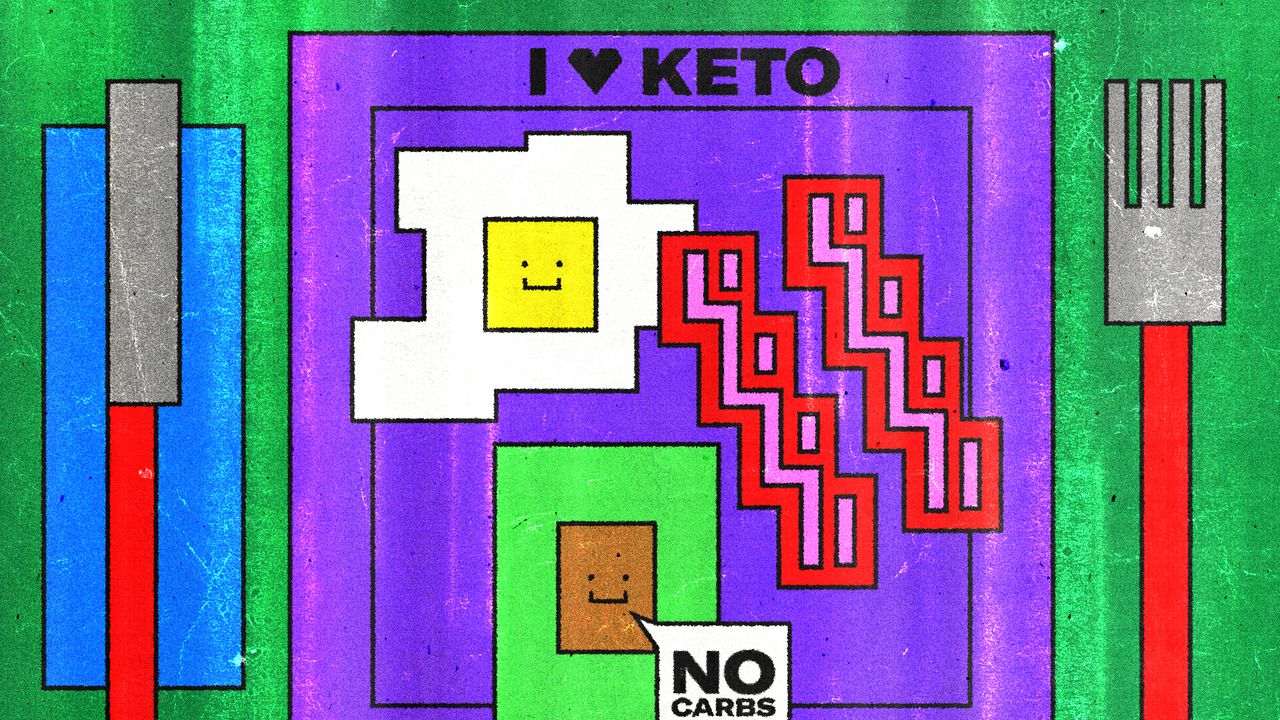For the average person looking to build metabolic flexibility, the cyclical approach leverages all the benefits of the ketogenic diet and makes the diet less restrictive, says Dr. Cole. It also helps them avoid the potential pitfalls of being in a constant state of ketosis, which includes microbiome diversity problems in the gut, Dr. Cole adds.
Some of Dr. Cole’s patients will do the lower-carb approach for three to five days of the week, and then stick to clean carb cycling for the rest of the week. Others will eat seasonally, incorporating more fresh berries into their diet during the summer and kick-starting ketosis during the fall and winter months.
“Being in ketosis is like natural Ozempic because it’s an appetite suppressant,” Kristina Hess, a licensed dietitian and nutritionist, says. “You’re not hungry. You’re no longer having those glucose spikes and so your blood sugar is nice and regulated. This metabolic state keeps you less hungry.”
What can you eat on the keto diet?
Dr. Cole, Hess, and Dr. Westman all agreed that the most effective way to implement the keto diet and reap its benefits long-term is to be flexible and intuitive with it. That starts with incorporating nutrient-dense whole foods into a diverse diet.
“You can build metabolic flexibility and gain blood sugar stability and optimal metabolic health through the ketogenic diet,” says Dr. Cole. “So it’s a path to support a tool within the toolbox to support metabolic health.”
The key to hitting the low-carb, high-fat ratio is to eat proteins that are rich in natural fats like salmon, eggs, or steak, Hess says. Proteins that aren’t as lean will help you hit the higher-fat, moderate-protein, and low-carb ratio more easily. Fruits have their place too but should be consumed in lower amounts. Fruits like berries that have lower fructose content are the way to go.
Dr. Westman remains wary of products that advertise themselves as being keto-specific because they tend to be amongst the ultra-processed foods he tells patients to stay away from.
“The strict type-A keto dieter will end up fearing carbs, but if they’re in whole food form, they really shouldn’t fear carbs, even if it lowers ketosis, because nutrient density and whole foods matter,” Dr. Cole says. “The long-term answer is some sort of low-carbohydrate, low-glycemic or Mediterranean [diet].”
The long-term impacts of the keto diet are unclear, but its effectiveness as a supplementary source of treatment is something that research shows can help with metabolic health, inflammatory problems, and brain health, as long as people doing it focus on nutrition.
“It’s just a little bit of a mindset shift,” Hess says.
